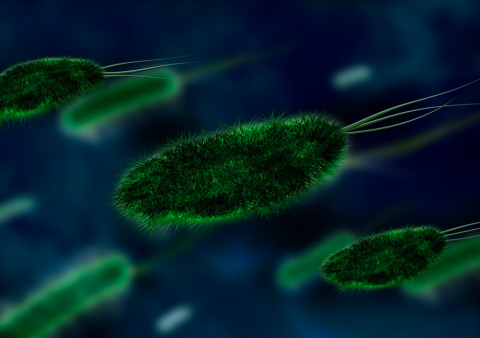
Fil d'Ariane
- Accueil/
- Évènements/
- Séminaire externe - Melissa Rinaldin (Max Planck Institute-Dresden)

Cette semaine, nous accueillons Melissa Rinaldin (Max Planck Institute-Dresden) pour un séminaire FRESK sur le sujet suivant "Self-organization of the cytoplasm in early embryogenesis"
Abstract:
Early development across vertebrates and insects critically relies on robustly reorganizing the cytoplasm of fertilized eggs into individualized cells. This intricate process is orchestrated by large microtubule structures that traverse the embryo, partitioning the cytoplasm into physically distinct and stable compartments. Despite the robustness of embryonic development, we uncover an intrinsic instability in cytoplasmic partitioning driven by the microtubule cytoskeleton. We reveal that embryos circumvent this instability through two distinct mechanisms: either by matching the cell cycle duration to the time needed for the instability to unfold or by limiting microtubule nucleation. These regulatory mechanisms give rise to two possible strategies to fill the cytoplasm, which we experimentally demonstrate in zebrafish and Drosophila embryos, respectively. In zebrafish embryos, unstable microtubule waves fill the geometry of the entire embryo from the first division. Conversely, in Drosophila embryos, stable microtubule asters resulting from reduced microtubule nucleation gradually fill the cytoplasm throughout multiple divisions. Our results indicate that the temporal control of microtubule dynamics could have driven the evolutionary emergence of species-specific mechanisms for effective cytoplasmic organization. Furthermore, our study unveils a fundamental synergy between physical instabilities and biological clocks, uncovering universal strategies for rapid, robust, and efficient spatial ordering in biological systems.